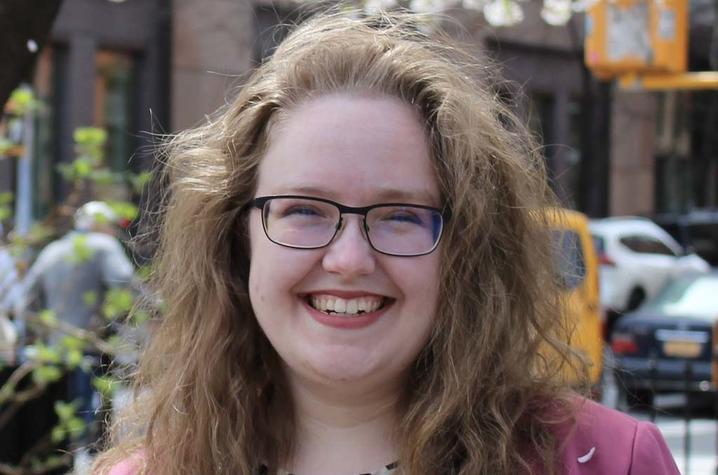By Erin Wickey
LEXINGTON, Ky. (Oct. 21, 2024) — In an era where American political discourse often unfolds online, a University of Kentucky researcher is examining evolving communication strategies with a focus on social media.

Maggie Macdonald, Ph.D., assistant professor in the Department of Political Science in the UK College of Arts and Sciences, studies elite political behavior in the United States. Most of her work has concentrated on congressional campaigns and how they use social media to achieve their electoral goals.
“I started graduate school in 2015 and decided to study Congress and Twitter,” Macdonald said. “I developed a theory that the use of social media is not for the voters but instead politicians use it to reach several elite audiences simultaneously.”
Macdonald points out that political platforms attract different audiences, noting that Facebook typically appeals to an older demographic compared to TikTok or Instagram. Each platform provides a space for politicians to convey different messages.
“Across the platforms, politicians have incentives to get as much attention as possible, maybe go viral,” Macdonald said. “The sort of messages that enable them to go viral are not necessarily ones that lend themselves to compromise and boring policy takes.”
Macdonald said social media can sometimes give politicians incentives to be more partisan and negative to gain likes and media coverage and to raise money. She says this can create a type of campaign that is more focused on media attention and gaining a national profile.
Before accepting anything as reliable and to encourage more critical thinking, Macdonald suggests the following tips to keep in mind when viewing political content online:
- Who is posting the content?
- Is it a news organization?
- Is it an influencer?
- Is it an organization that has been fact checked?
As a social scientist, Macdonald said she sees patterns of news and political behavior and advises people to remain curious. If something falls perfectly in line with your political views, she recommends digging deeper into the source and some of the motivations that source may have.
“To some extent, online is not the real world. People can post but that does not mean that they will vote, attend a rally, contribute or put up a yard sign. But at the same time, our media environment is very fragmented. It is relatively easy to only consume media and social media posts that is in line with your political view and that does shape our offline political environment.”
Watch the video above to learn more about Macdonald and her work.
